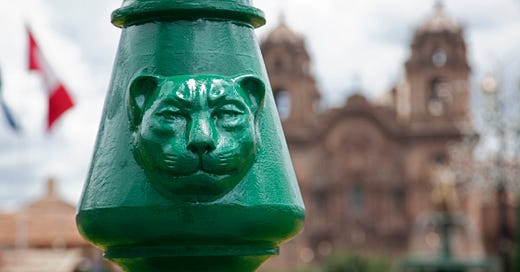Why do we often insist that a country’s food needs to conquer? That it needs to expand and reach new soils. To find economic success and approval from someone far away to make it relevant?
Again and again in food media, particularly in Latin America, I see some variation of the headline: “Chef/Ingredient from X Conquers X.” …
Keep reading with a 7-day free trial
Subscribe to New Worlder to keep reading this post and get 7 days of free access to the full post archives.




